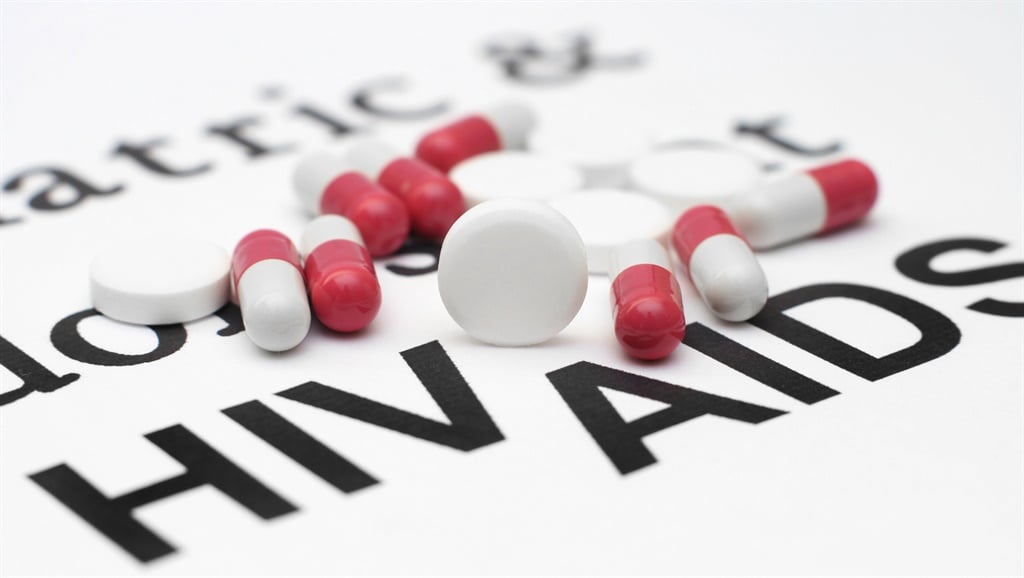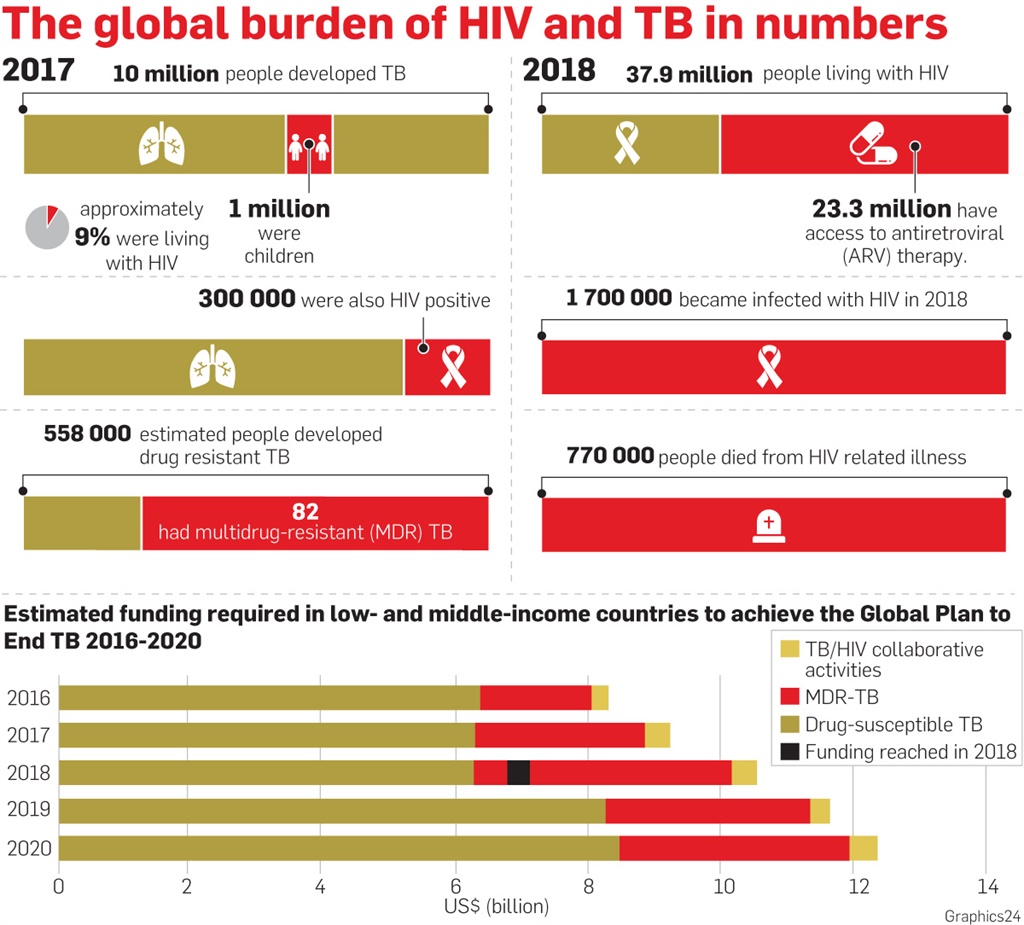
MFS says decline in funding threatens to roll back gains made in tackling diseases
Each day, 30 000 people fall ill with tuberculosis across the world.
And combined with HIV, these two infectious diseases will kill 2 million people a year.
Yet despite this real threat, the often-termed “twin epidemics” are a growing threat both on domestic and global public health systems.
According to a new report by humanitarian aid group Doctors without Borders (MSF), a recent decline in international funding for programmes that address access to healthcare and prevention services particularly in nine African countries, could spell the reversal of gains made in the last decade.
Titled Burden sharing or burden shifting? How HIV/TB response is being derailed, the MSF report was released last week and reveals that donor and domestic funding for HIV programmes declined last year for the first time in a decade, falling by $1 billion (R15 billion) in low and middle-income countries.
MFS examines the health and HIV/TB financing situation in the Central African Republic, the Democratic Republic of Congo, eSwatini, Guinea, Kenya, Malawi, Mozambique, Myanmar and Zimbabwe.
In Guinea, for example – which has 120 000 people living with HIV and 5 600 with HIV and TB – the report noted that deaths linked to HIV and TB increased by 7% and 5%, respectively, between 2010 and 2016.
However, grants signed by the Global Fund for HIV and TB decreased by 17% from 2015 to 2017 and 2017 to this year.
This had an immediate impact on the responses to these diseases, with financial gaps in the prevention of mother-to-child transmission programmes, early infant HIV diagnosis, viral load testing and psychosocial support as well as for medicines and medical products.
This led to stock-outs and shortfalls, as seen during the stock-out of ARVs in South Africa last year.
The report states: “For HIV, the 2016 UN General Assembly High Level Meeting political declaration called for increased annual investments to at least $26 billion by next year in order to meet the 2030 target [of ending Aids]. Last year, however, only $19 billion was made available. This decline marks the first time funding decreased since 2000.”
It adds: “The decrease in resources occurred across all sources; specifically 2% in domestic resources, 20% in Global Fund, 2% for other multilateral platforms, 3% from the bilateral US government programmes and 17% among other donor countries’ bilateral contributions, as well as 18% and 4% reductions in philanthropic and other international sources, respectively.”
Dr Mit Philips, one of the contributing authors of the report, said in a statement: “This recent downward trajectory in funding comes at a critical juncture for the HIV and TB response.
“While gains made in countries such as Mozambique are at significant risk of backtracking, there is an even higher risk that countries in regions such as West and Central Africa, which are already lagging behind in the HIV and TB response, may see the situation deteriorate even further.”
As Philips noted, there was an impressive 27.5% decrease in mortality due to HIV over the last 10 years.
However, HIV remained the major cause of death in the country.
“An estimated 2.2 million people with HIV live in Mozambique, and more than 173 000 are children; 411 new infections occur each day … its health sector is heavily subsidised by external donors – more than 57% this year – through different mechanisms,” Philips said.
The US President’s Emergency Plan for Aids Relief and the Global Fund together represent around 90% of HIV funding in the country, while government expenditure accounts for about 2.5%.
Similarly, the TB programme is 95% externally funded with its main donors being the Global Fund, the World Bank and USAid, according to the report.
Zimbabwe on the other hand, with 1.3 million people living with HIV and 88% of them on treatment, has had two main donors reducing their combined allocations for 2017 to this year from $247 million to $217 million for HIV programmes.
The report’s authors recommend the stepping up of efforts to keep the HIV and TB response high on the agenda and increased in investments. The report also recommends that various stakeholders in the response to HIV and TB commit to the reversal in the decline in international funding.
With the decline of funding for TB and HIV programmes in some African countries, do you think governments will be able to afford free treatments?
SMS us on 35697 using the keyword FUNDING and tell us what you think. Please include your name and province. SMSes cost R1.50. By participating, you agree to receive occasional marketing material




 Publications
Publications
 Partners
Partners










